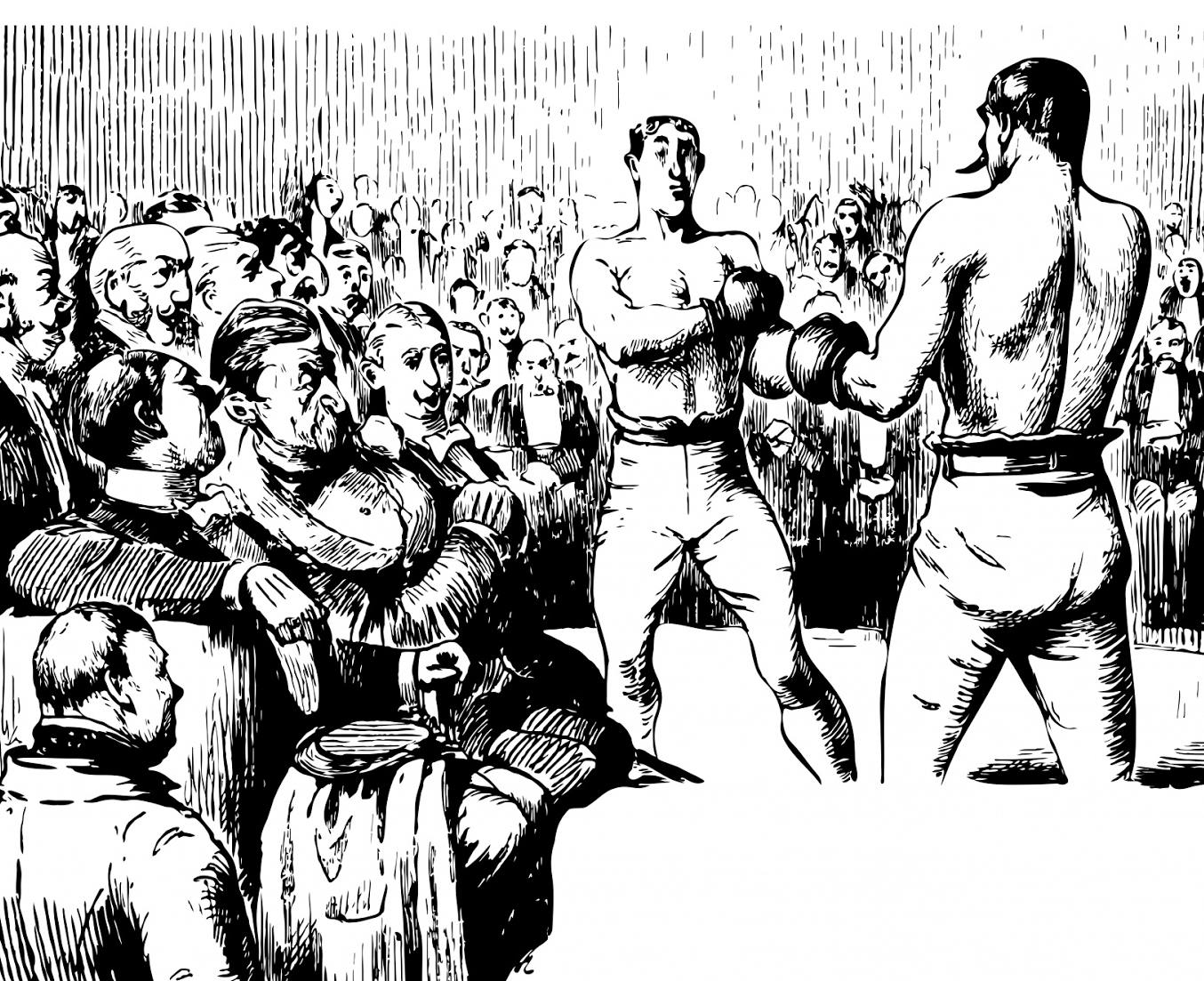A verb and an adjective step into the ring, gloves on, trainers at the ready, the bell rings and they come out swinging… who wins? If you’re advertising legend Leo Burnett, you lay your money on the verb. He claims the verb is much more powerful than the adjective. For those denizens of the world of Twitter, here’s a frying pan to the face; according to Dan Zarrella, a one time scientist over there at Hubspot: ”Verbs beat all.” This includes even the heavy hitters; adverbs and adjectives. This is in terms of attracting a high number of shares.
As Dan’s data shows, Twitter updates that contain a verb have a 2 percent higher shareability than the average tweet. It’s very clear, a well chosen verb can give your piece that much needed “look at me!” Words like; boost, buy, click, call, build, explore… they are a call to action, and who doesn’t like a call to action? No one. Even if you’re lounging on a beach, if the call to action is “drink!”… you like it.
A strong verb will be the key to the headline. Advertising legend David Ogilvy once stated, “The headline is the single most critical element in copy.” You know this, you believe this, you write this. Strong calls to action with applicable verbs. Now it’s time to bring this idea outside of content and into your pitch.
You know the phrase; you can talk the talk, but can you walk the walk? Or, walk the line, or touch me in the morning, then just walk away… you can drop a verb in a headline, but can you live the verbs in the kick off meeting with your clients? Is your presentation full of adjectives; beautiful, big, important, different ones? If so, think about changing a few of them out and replacing them with some good, active, call to action, verbs. Once you do that, ask yourself, are the verbs you’re picking strong enough? How do you take a verb with the power of a plastic spork and elevate it to the power of Thor’s mighty hammer?
I come from a background in acting. Many years on the boards, in front of the camera. What did I learn? Craft services can make or break a shoot. A good stage manager is worth their weight in gold three times over. Most film directors have no idea how to talk to actors. Most important, the best actors play the strongest verbs in the most specific manner possible. I learned this early on and applied this little formula to each line of dialogue I had;
The Verb, The Receiver, The Desired Response. VRDR
You chose a verb to play, let’s say; To elevate. You chose a person to use that verb on; let’s say, in the scene you’re playing, you’re working on your boss. Then, you go after a desired response, make him feel like he’s the best thing going so that he gives you a raise.
To elevate(V) the boss(R) so I get a raise(DR).
Experience and practice helps you find the strongest verbs, the ones you can put your shoulder behind, get passionate about and push for the first meeting with a potential client. The ones that you can find different ways, better ways, exciting ways, to attack. Hey, that’s a nice verb right there.
You’re thinking, Steve, I can write a nice verby headline but, how do I do that in a meeting?
Two things; first, my name isn’t Steve and second, whether you know it or not, you actually do this in your everyday life. You wanna play poker with the guys but you’re not sure the wife is going to dig you being out all night, coming home smelling like cigars, bourbon and hookers. Still, you need the night out with the men to grunt, swear, drink and feel like you did back in college. What do you do? Bring her flowers, compliment her cooking, say she looks great in that dress, you know the drill. To compliment(V) your wife(R) so she lets you play for the night(DR). She is complimented, flattered, feels like you actually notice her, (which you need to do more often, I’m just saying), and you get to go play poker. You got there by using verbs.
That’s all well and good for the day to day, slip one by the wife, get the boss to give you a morning off. That’s spork power. When it comes to getting the client in the door, getting them on board with the idea, getting the idea out to the public, you need strong verbs, serious call to action verbs.
Ask yourself, what are you doing to the client, to the receiver of your well chosen verbs? What are you doing to the public to get them to buy, sign up, give you their contact info? What are you doing? Are you making a clear enough, strong enough call to action? Is your client standing up and screaming “Hell Yes!”? Not just, “Yes, sure, I like that.” Are they throwing you their wallets, signing over their houses, putting their children into hock because you have activated them? Well, they should be. Adjectives may paint a picture but verbs will get them moving.
You’re getting ready for a kick off meeting, you’re thinking about good, active verbs, keep in mind who is the receiver of the verb? What can you do to tailor your verb choice specifically for them? You’re not going to use the same verbs on a client you’re trying to get on board with an idea as you did on your wife, are you? No, the answer is no. You tell a client they look nice in that dress, that’s just creepy. Especially if it’s a guy and he’s not wearing a dress. If he is, then, I don’t know, compliment him but … be specific about it.
Each new client, potential client, or project is a chance to flex your verb choice. Look at your current approach, if you’re going into a needs audit and you’re thinking; “I’m going to wow this client”, ask yourself, is that strong enough? Try this, change wow to captivate, captivate to mesmerize, mesmerize to transfix and on and on. If you think you have the strongest verb possible I can bet you all the money in my pockets right now, that you don’t. When in doubt, raise the stakes. In your mind, make this client the most important one in the world, this will naturally cause you to pick a stronger verb.
It takes practice. Keep looking at your everyday verb choices and asking if they’re strong enough. Keep trying to replace a few adjectives with a good verb. There’s a great reference book, it’s called: Actions, an Actor’s Thesaurus. This is a book full of active verbs and a great guideline to show you how to up the power of your verb choice. You know the receiver, you know the desired response, now work on your verbs. They’re your power, your fuel, your strength. The more experience you have strengthening verb choice, then naturally, you’ll be upping the stakes in your calls to action. If it’s working in your content, it can also be working in your speech.


